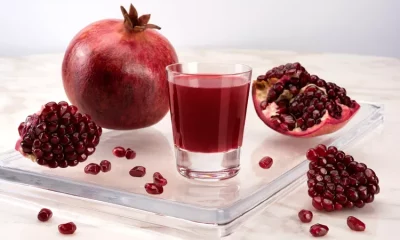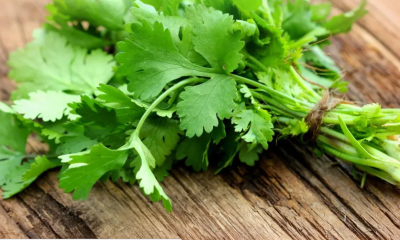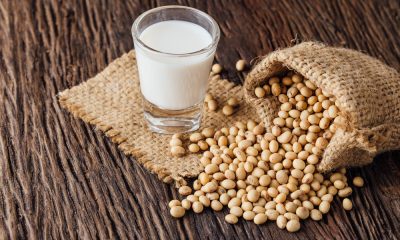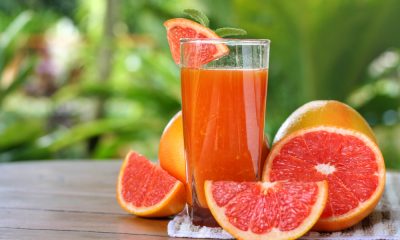Health
8 benefits of dandelion tea and side effects

Discover the 8 shocking benefits of dandelion tea and side effects.
What most people find to be an annoying weed, can be a healthy drink and a tasty tea.
Dandelions grow in gardens around the world every spring and last all summer.
Their bright yellow leaves are easy to spot and their seed pods are often used to make wishes.
These herbs offer powerful health benefits when consumed as food or in drinks such as tea.
We’ve put together a list of the health benefits of dandelion tea that will inspire you to brew a cup of this vibrant tea.
Whether you love the light floral flavor or prefer strong tastes like coffee, dandelion tea has something for everyone.
First, learn the health benefits of each type of tea here.
What is dandelion tea?
Dandelion tea is an herbal tea made from various parts of the dandelion plant. It is known as Taraxacum officinale.
There are several different types of dandelion tea depending on whether the tea is made from:
leaves,
flowers
or the roots of the plant.
One of the most common is known as roasted dandelion root tea or “ dandelion coffee ”.
The tea gets its name from the dark color of the roasted root, which resembles coffee beans.
This type of dandelion tea is often used as a coffee substitute.
Flavor profile
Dandelion tea made from flower petals offers a delicate and sweet taste.
Roasted dandelion teas offer a bolder flavor with smoky and toasted notes that are paired with a robust flavor.
Dandelion leaf teas offer an earthy, herbaceous flavor that may have astringent notes.
Health Benefits of Dandelion Tea
1. Contains large amounts of fiber
Dandelion leaves contain high concentrations of fiber, which helps to streamline digestion and improve overall health.
Eating a diet high in fiber can help improve digestive health and relieve intestinal tension.
The dietary fiber in dandelion leaves can also help prevent digestive system problems such as:
irritable bowel syndrome
kidney stones.
2. Rich in vitamin A
Dandelion leaves are full of vitamin A, which can help improve the appearance of your skin. They also reduce inflammation.
Vitamin A is also essential for healthy vision and can prevent serious problems like macular degeneration.
Dandelion tea is known for its cleansing properties
Vitamin A may also ease symptoms of measles, a disease rare in the United States, but which has recently increased in frequency due to anti-vaccination movements.
Taking vitamin A can shorten the duration of symptoms, including:
upset stomach
diarrhea
and fever.
3. Good for bone health
Dandelion root tea contains high amounts of vitamin K, which is known to help strengthen bones.
Studies show that vitamin K, especially K2, may be a better choice than calcium for bone health.
Calcium can cause stiffness in the arteries, which can increase the risk of blood clots.
Vitamin K2 offers the same mineral properties for bone health, with no side effects on heart health.
Drinking dandelion tea helps prevent fractures and breaks in bones that do not have high bone mineral density.
4. Helps target free radicals
Dandelion tea contains antioxidants that fight free radicals – compounds that can cause oxidative stress and damage to healthy cells.
Antioxidants work to remove free radicals from the body, thus protecting against long-term damage.
Free radicals have been linked to a host of health problems, including cancer and premature aging.
5. Benefits of dandelion tea for liver
Dandelion leaf tea can help protect liver function and aid digestion in general.
A study published in the Journal of Medicinal Food found that the antioxidant and anti-inflammatory properties of dandelion leaves help prevent liver damage in mice caused by unhealthy eating.
Dandelion tea contains vitamin C, which improves the absorption of minerals.
It also strengthens the immune system and prevents illnesses, including colds and flu.
The antioxidants in this tea also help stimulate bile production, which helps the body to break down and process food.
6. May help fight cancer
Dandelion root tea can cause certain types of cancer cells to die.
A study published in Evidence-Based Complementary Alternative Medicine looked at these cancer-fighting properties.
Researchers found that dandelion root extract – when combined with the diabetes drug metformin – could treat human melanoma G361.
7. Benefits of dandelion tea for urinary tract infections
Dandelion tea has natural diuretic properties.
These diuretic properties can also help regulate blood sugar levels. They improve the general state of health.
Consuming dandelion tea can help the body flush out toxins and wastes. This prevents bacterial infections in the urinary tract.
This happens because the healthy compounds in dandelion tea decrease inflammation and the diuretic effect increases urine output.
One study showed that these effects were most pronounced when dandelion was combined with uva ursi, known as bearberry.
8. Dandelion tea for weight loss
Dandelion teas can help speed up weight loss when used in conjunction with a healthy diet and exercise program.
Since tea has natural diuretic properties, it helps reduce water weight.
Dandelion tea is a natural diuretic
The antioxidants in dandelion leaves, dandelion flowers, and dandelion root extract also help speed up metabolism and improve fat burning.
Replacing sugary drinks with dandelion tea can also help reduce calories.
You still get a sweet and delicious flavor without the extra calories that can add up to the pounds.
The flavor of dandelion tea is also more exciting than that of plain water, so it’s easier to stay hydrated and stick to your diet.
Side effects of dandelion tea
If you are allergic to ragweed, you may also have an allergic reaction to dandelion tea.
Avoid drinking this herbal tea if you are allergic to dandelion or related plants including daisies and chrysanthemums.
Stop use immediately and contact a healthcare practitioner if you experience symptoms, including:
a rash
breathing difficulties
and an itchy throat.
Drugs interactions
Dandelions can inhibit the absorption of certain antibiotics, effectively decreasing the effectiveness of drugs.
If you are taking antibiotics, including Cipro and norfloxacin, talk to your health care provider before taking dandelion.
Dandelion can also interfere with certain diuretics and cause other side effects.
Dandelion tea is naturally caffeine-free
The main thing to watch out for is the potassium content.
Some diuretics contain potassium which when taken with dandelion herbal tea can reach unhealthy levels in the human body.
If you are taking any medication, always talk to your doctor before using any herbal or herbal teas.
Significantly increasing the consumption of dandelion tea in conjunction with medications for the liver may also decrease the effectiveness of these medications.
Consume this tea in moderation and check that the tea does not interact with your medications.
How to make dandelion tea
The process of brewing dandelion tea differs depending on the type of dandelion tea you are brewing.
In general, dandelion tea should be brewed using hot water or boiling water.
It is also better to use:
loose leaves,
fresh flowers
or dried roots rather than tea bags.
Leaves and flowers should steep for about 5-10 minutes, while roots are best 6-8 minutes.
Sunny and bright dandelion tea
Dandelion herbal tea is a delicious herbal tea that can bring sunshine to your world.
Vibrant flowers look gorgeous when infused in hot water and provide endless health benefits.
You can also opt for dandelion leaf or root teas if you prefer stronger flavors.
Pour yourself a delicious cup of dandelion tea and soak up the health benefits.
Health
Serious side effects of topamax
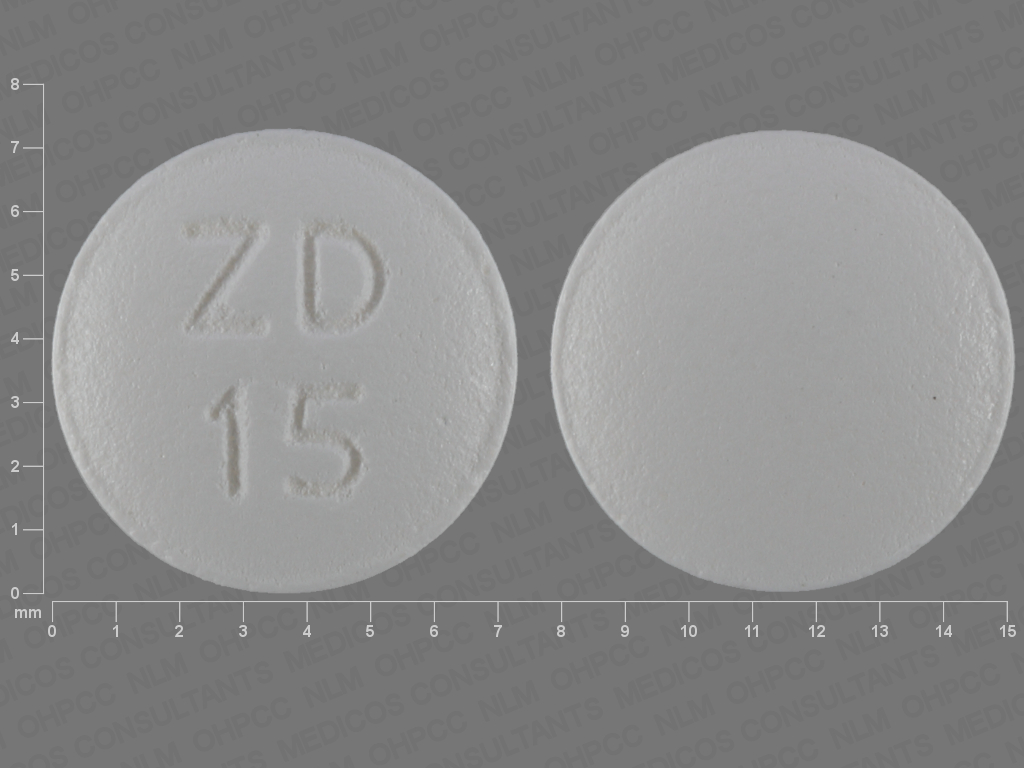
Discover the serious side effects of Topamax
One of the medicines used to treat seizures in adults is Topamax, the active substance of which is topiramate.
The taking of this drug should always be done under medical prescription and with the corresponding prescription, as well as it is essential to follow the instructions regarding the dosage indicated by the specialist.
To learn more about Topamax along with its indications, use, and side effects, keep reading this article.
What is Topamax for
Topamax is a topiramate-based drug used to treat seizures in adults and children older than 2 years.
This anticonvulsant is administered in the event of partial seizures with or without secondary generalization or primary generalized tonic-clonic seizures and for the treatment of seizures associated with Lennox-Gastaut Syndrome.
It should be noted that this drug is also used to prevent migraine, although not as a treatment to alleviate them.
Warnings about Topamax
Taking Topamax should always be prescribed by a doctor and it will be necessary to notify your doctor beforehand in case of:
•glaucoma or other eye problems
•kidney disease, kidney stones, or dialysis
•breathing problems
•mood problems, depression, or suicidal thoughts or attempts
•liver disease
•osteoporosis, osteomalacia
•growth disorders
•be taking lithium
•suffer from diarrhea
•being lactose or sucrose intolerant
•It is also not recommended to take Topamax by pregnant or lactating women, as this drug can cause fetal harm or be excreted through breast milk.
Likewise, you should never drink alcohol while you are being treated with Topamax, as the side effects can be very serious.
Side effects of Topamax
Different side effects derived from taking Topamax have been described, so you should go or notify your doctor quickly if you feel any of the symptoms described below:
•Allergic reactions such as difficulty breathing, hives, swelling of the face, tongue, lips, or throat.
•Sudden changes in mood or behavior
•Anxiety and/or panic attacks
•Difficulty to sleep
•Irritation, agitation, and hyperactivity (mentally or physically)
•Depression or thoughts of killing yourself or hurting yourself
•Numbness or tingling in the extremities
•Headache, tiredness, dizziness, or drowsiness
•Changes in taste
•Nausea, diarrhea, indigestion, stomach pain, loss of appetite or weight
•Quick back and forth movements in your eyes.
Likewise, it should be noted that these are not only the adverse effects that Topamax can cause, so you should consult your doctor in case of any other type of alteration or symptom.
This article is merely informative, we do not have the power to prescribe any medical treatment or make any type of diagnosis.
We invite you to go to a doctor in the case of presenting any type of condition or discomfort.
Health
18 benefits of peanuts during pregnancy
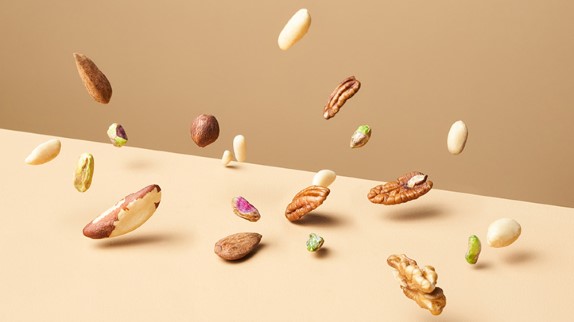
Discover the 18 benefits of peanuts during pregnancy.
Peanuts during pregnancy can be very beneficial for future mothers and their fetuses. Peanuts are not only delicious, but they are also packed with vitamins, minerals, and other natural compounds that are great for pregnancy, which you can’t miss.
You must remember that pregnancy is a wonderful gift that only women can experience.
Being pregnant is like a noble job ordained directly by God for women, something that men could not do on their own. During pregnancy, the fetus magically grows inside the woman’s womb until the baby is born into the world.
To ensure the optimal development of the fetus before it is born, mothers must consume highly nutritious food because it is the only way the fetus can obtain food.
When it comes to the list of foods that mothers should consume during pregnancy, the list will be endless, but you could consider the benefits of peanuts during pregnancy, as peanuts
Peanut Nutritional Values
Peanuts are considered a healthy snack. However, this does not mean that you can consume without knowing the nutrients that peanuts contain.
By knowing the nutrients contained in peanuts, you can measure the number of peanuts needed during pregnancy, since surely the needs of each one are different from those of others.
Serving Size: 100 grams
Energy 567 kcal – 29%.
Carbohydrates 16.13 g – 12%.
Protein 25.8g – 46%.
Total fat 49.24 g – 165%.
Dietary fiber 8.5g – 22%.
Folate 240 µg – 60%.
Niacin 12mg – 75%.
Pantothenic acid 1,767 mg – 35%.
Pyridoxine 0.348 mg – 27%.
Riboflavin 0.135 mg – 10%.
Thiamine 0.64 mg – 53%.
Vitamin E 8.33mg – 55%.
Calcium 92mg – 9%.
Copper 1,144 mg – 127%.
Iron 4.58mg – 57%.
Magnesium 168mg – 42%.
Manganese 1,934 mg – 84%.
Phosphorus 76 mg – 54%.
Selenium 7.2 µg – 13%.
Zinc 3.27mg – 30%.
Sodium 18mg
Potassium 705mg – 15%.
From the table above, surely you have a general idea of the number of peanuts you could consume daily.
The key is to consume it in moderation, but sometimes it is necessary to ensure that the daily intake of a certain nutrient can be met to ensure optimal development of the fetus.
18 Benefits of Peanut During Pregnancy
Below are the benefits of peanuts during pregnancy that will give you reasons why you should add this healthy and delicious snack to your daily diet.
1.- Excellent source of folate
During pregnancy it is highly recommended to consume foods rich in folate and peanuts are one of them.
For every 100 grams of peanuts, approximately 60% of the daily intake of folate could be covered. It is common knowledge that folate is essential for fetal development, especially early in the trimester.
2.- Natural source of vegetable protein
Protein is essential for a mother during pregnancy and 100 grams of peanuts contains enough protein to meet the daily intake.
3.- Prevents birth defects
The birth defect can occur when the development of the fetus is disturbed or when there are insufficient nutrients to support development.
Peanuts are packed with vitamins and minerals that are great for pregnancy like folate to support optimal growth and minerals like iron and calcium to make sure there is enough red blood cell stock.
4.- Promotes optimal brain development
It is great food for the brain. During pregnancy, the fetus receives nourishment from the mother, and the folate consumed by the mother is not only beneficial to the mother, but also the developing brain of the fetus.
If you want to have a healthy and smart baby, eat peanuts during pregnancy.
5.- Source of calories for the mother
Each mother’s calorie needs may be different, but calories are essential for increased energy.
During pregnancy, a mother may suffer from fatigue and get tired easily. To help boost energy, peanuts can help restore it.
6.- Contains healthy fats
Not all fats are bad and peanuts do contain some healthy fats that are great for the mother during pregnancy.
Healthy fats are great for promoting a healthy heart, as mothers are at high risk for high blood pressure during pregnancy.
7.- Reduces the risk of allergic diseases
Recent studies have indicated that mothers who consume peanuts during pregnancy may reduce the risk of allergic diseases.
Not only allergic foods such as peanuts but also other types of allergies such as asthma.
8.- Helps control blood pressure
High blood pressure during pregnancy could be fatal for both the mother and the fetus. That is why it is very important to always keep your blood pressure under control.
To help control blood pressure, adding peanuts to your daily diet is highly recommended because basically, peanuts are great for your heart.
9.- Prevents gestational diabetes
On the table, it was seen that peanuts are quite rich in manganese. This mineral has an important role in regulating blood sugar levels during pregnancy to prevent gestational diabetes. Additionally, manganese also promotes optimal calcium absorption.
10.- Fight depression
During pregnancy, the mother is at risk of stress and depression. Well, some studies have shown that mothers who eat peanuts are much happier than those who don’t. So whenever she feels stressed, she snacks on peanuts.
11.- Decreases the risk of weight gain
Obesity during pregnancy is never good for both mother and baby. That’s why managing your weight is so important peanuts, while they do contain fat and calories, fats are healthy fats and packed with other nutrients that may help you control calories.
12.- Promotes skin health during pregnancy
One of the problems that every mother has to deal with during pregnancy is the skin problem.
Although they are prohibited from using cosmetics due to their chemical content, they could manage their skin problem just by consuming peanuts. Vitamin E and antioxidants will help prevent all skin conditions.
13.- Source of vitamin E
Vitamin E is the reason why a pregnant mother should look good. Vitamin E promotes skin health and makes sure that there is no such skin condition that the mother has to face.
Therefore, they could focus on her pregnancy instead of giving birth to a healthy baby.
14.- Great source of omega 3 fatty acids
If you think that fish is not your friend during pregnancy but you know that you need a great source of omega 3 fatty acids, you could replace fish with peanuts because they contain quite high healthy fats.
15.- Excellent source of vitamin B complex
In the table above you can see the high content of vitamin B found in peanuts per 100 grams. Most of them could satisfy almost half of the daily intake of vitamin B.
16.- Contains powerful antioxidants
Antioxidants are not only a solution against cancer, but during pregnancy, antioxidants could help the mother to maintain her immune system so that she doesn’t get sick easily.
17.- Rich in minerals
Looking for a quick fix to meet your daily mineral intake during pregnancy, peanuts are the answer.
You could see the nutritional table above about the value of minerals found in peanuts. 100 grams of peanuts are capable of satisfying half of the daily intake of minerals that your body needs.
18.- Super healthy sandwich
Well, during pregnancy you need to make sure that you consume enough food to ensure the optimal development of the fetus. Add peanuts to your daily diet because they are the super healthy snack that everyone loves.
Peanut Precautions
Peanuts may be packed with vitamins, minerals, and other natural compounds that are beneficial during pregnancy.
The list of benefits of peanuts during pregnancy mentioned above are scientifically proven facts. However, there are still some precautions about peanuts that you should be aware of as well.
Allergic reaction is one of the common things that can happen when peanuts are consumed. If a mother has ever been diagnosed as allergic to peanuts, she should not eat them.
Some studies also claim, that too many peanuts consumed during pregnancy could increase the risk of allergic reaction to the baby when they were born. Therefore, it is better to consume it in moderate amounts.
Peanut butter can be delicious, but it is recommended to consume it in its real form, as peanut butter has been through some processing and care must be taken with the amount of refined sugar in peanut butter.
Be careful with salty peanut snacks too because they can be delicious to eat during pregnancy, but salt contains sodium that could increase your blood pressure level. High blood pressure during pregnancy can be fatal.
Peanuts are healthy snacks that mothers can add to their daily diet, especially in the early stages of pregnancy when morning sickness is at its worst.
Just by eating peanuts as a snack, you could at least ensure that the baby inside your womb is still getting the nutrients that she needs to develop.
However, you need to keep in mind the precautions mentioned above if you want to reap the full benefits of peanuts during pregnancy and not the other way around.
Health
10 shocking health benefits of Arugula
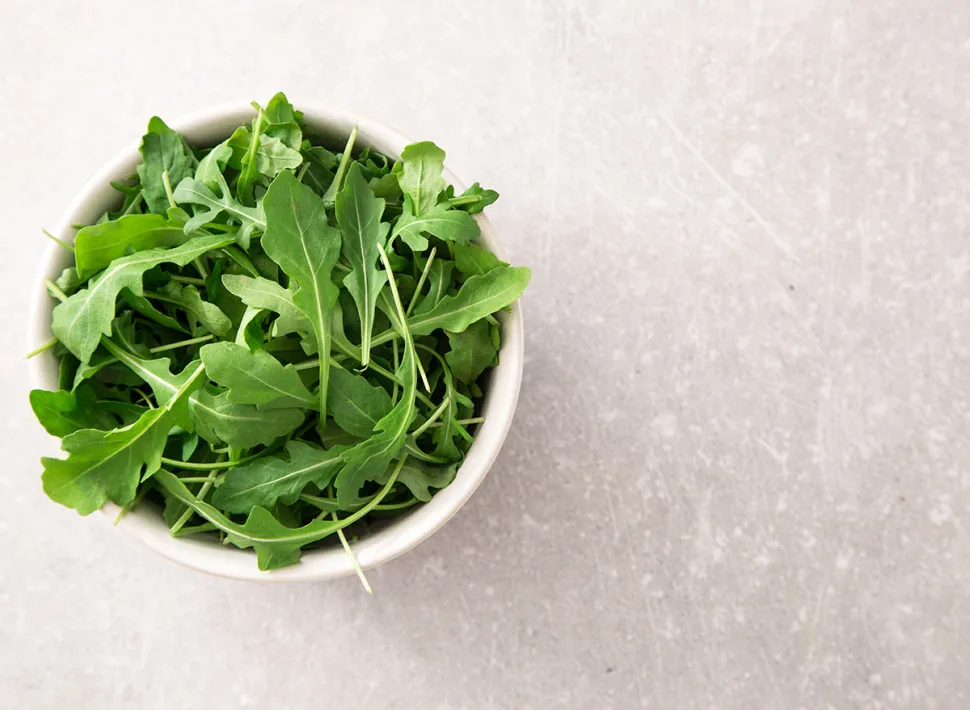
Table of Contents
-

 Food5 months ago
Food5 months ago10 + Benefits of carrot juice and side effects
-

 Food5 months ago
Food5 months ago8 shocking benefits of leek juice and side effects
-

 Health5 months ago
Health5 months agoBenefits of guava leaves Sensually
-

 Health5 months ago
Health5 months ago10 shocking health benefits of Canary seed milk
-

 Health5 months ago
Health5 months ago7 health benefits of cashew leaves and side effects
-

 Health5 months ago
Health5 months ago13 shocking health benefits of Thai eggplant
-

 Weight Loss5 months ago
Weight Loss5 months agoKelly Osbourne weight loss 2022
-
Weight Loss5 months ago
Chrissy Metz Weight Loss Secret (2022)

